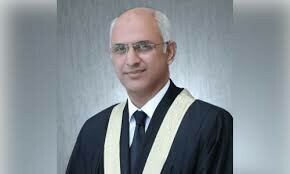NEW DELHI: The Bharatiya Janata Party (BJP) revels in lighting a fire here, another there, which keeps the opposition busy with a range of unfolding issues — temple building, cow-slaughter, love jihad, sedition, claims of surgical strikes into the neighbour’s backyards. It may have just started one on Monday when a BJP MLA in the Maharashtra assembly demanded the demolition of the iconic Jinnah House in Mumbai.
The sprawling mansion in Mumbai was built by the Quaid in what is today a prime location, but has been in disuse since its last occupant, Britain’s deputy high commissioner, vacated the property in 1982.
Reports said MLA Mangal Prabhat Lodha, who doubles as a large real estate developer in the financial capital, wants the structure to be levelled. He told the legislature that the Jinnah House in South Mumbai symbolised the division of India in 1947. Therefore, the 2.5 acre land worth about $400 million, should be replaced with a cultural centre.
The house was the venue for talks on the partition between Jinnah and Indian leaders
“The Jinnah residence in south Mumbai was the place from where the conspiracy of partition was hatched. Jinnah House is a symbol of the partition. The structure should be demolished,” he said, arguing that lakhs are wasted in maintaining the European-style seafront bungalow which was constructed in the late 1930s.
NDTV said the Jinnah House, with its imposing columns, Italian marble and walnut panelling, was decaying.
The historic house was the venue for watershed talks on the partition between Mohammad Ali Jinnah and Indian leaders. Pakistan has requested New Delhi to either sell or lease the house to its government for use as a consular office. India has neither refused nor accepted that request. The house now remains locked and is in an advanced state of disrepair. In 2007, Dina Wadia, Mr Jinnah’s daughter who was then 88 and lived in New York, approached the high court in Mumbai in a bid to gain ownership of the property. Her son, Nusli, lives in Mumbai and heads a large textile and real estate business.
After partition, India appropriated immovable and movable property left behind by those who chose to go to Pakistan, designating such assets as evacuee property. But as a goodwill gesture, Prime Minister Jawaharlal Nehru ensured neither Mr Jinnah nor his daughter were declared evacuees. Nor was the Jinnah House registered as an evacuee property.
Last week, parliament cleared the updated Enemy Property Act, which states that successors of those who migrated to Pakistan and China during partition have no claim to the properties left behind by their families in India. It is not clear if the new law changes the status of the Jinnah House.
Analysts say that Pakistan has been repairing and maintaining old temples and gurdwaras, which are of immense value to Indian devotees who throng there. Any move to harm the emotionally loaded Jinnah House would only make India look sillier.
Published in Dawn, March 28th, 2017















































Dear visitor, the comments section is undergoing an overhaul and will return soon.